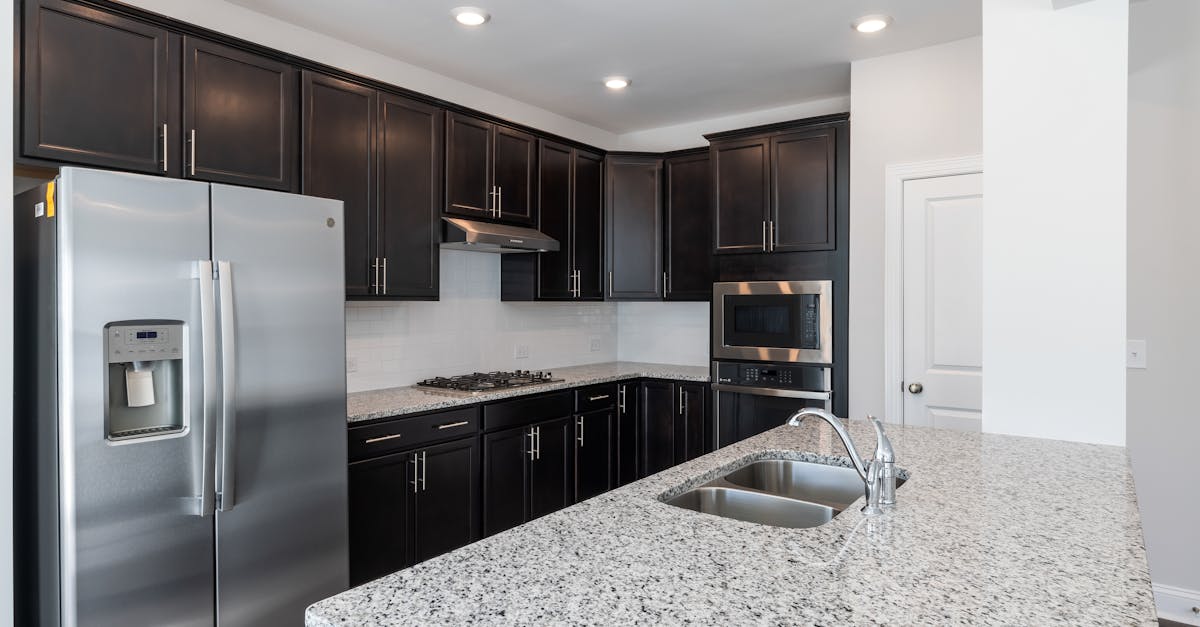Essential Tips for Buying a Fixer Upper
Introduction to Fixer Uppers
The allure of buying a fixer-upper has captured the imagination of aspiring homeowners for generations. Offering the potential for personalization, these properties present an opportunity to create your dream home from scratch. However, purchasing a fixer-upper comes with its own set of challenges and considerations that potential buyers need to be aware of. From understanding the true costs involved to assessing potential return on investment, there's more to these budget-friendly homes than meets the eye. Before embarking on such a venture, it's essential to gather all relevant information to make informed decisions. Through this article, prospective buyers can gain insight into the complexities and rewards of purchasing a fixer-upper.
Advertisement
Determine the Extent of Repairs Needed
Before committing to a fixer-upper, one crucial step is assessing the condition of the property. Conducting a thorough inspection is pivotal in identifying the range and scope of repairs needed. This should be done by a qualified home inspector who has experience assessing older or distressed properties. Their expertise can shed light on hidden issues, such as structural damage, outdated wiring, and plumbing problems. Understanding the property's current state helps in estimating the repair costs, enabling you to make realistic budget plans. Knowing what's necessary to bring the house up to standard will guide you in deciding whether the investment is worthwhile.
Advertisement
Budgeting for Renovations
A major factor in purchasing a fixer-upper is mastering the art of budgeting. Renovation costs can quickly escalate, with expenses for permits, unforeseen repairs, and design changes adding up. It's essential to set a realistic budget that accommodates potential setbacks. Obtaining quotes from multiple contractors can provide a more accurate cost estimate, which should be padded with an extra 10-15% contingency fund for unexpected expenses. Financing options, like renovation loans, may offer a solution to bridge the gap between limited budgets and the desired home outcome. A well-planned budget serves as the backbone of a successful renovation project.
Advertisement
Determining Property Potential
Not all fixer-uppers are created equal—some have greater potential for appreciation than others. Essential factors to consider include the neighborhood, market trends, and potential resale value. A property in a rising neighborhood with good schools and amenities has a better shot at providing an excellent return on investment after renovations. Conduct a comparative market analysis, diving into recently sold, renovated homes in the vicinity. Understanding these factors helps you gauge the potential value increase of your fixer-upper post-renovation. This strategic approach ensures that your investment aligns with broader market conditions, enhancing its future desirability.
Advertisement
Deciding on DIY vs. Professional Help
One attraction of fixer-uppers is the opportunity for DIY renovations, allowing homeowners to save on labor costs. However, it's crucial to know the limits of your DIY capabilities and when it's best to hire professionals. Safety and code compliance should always come first—complex tasks like electrical work, plumbing, and structural modifications are best left to the experts. Engage with professional contractors for specialized work as needed, while tackling more manageable tasks yourself. This balanced approach ensures high-quality results and minimizes potential pitfalls that arise from inexperience.
Advertisement
Navigating Permits and Regulations
Renovating a fixer-upper often involves navigating a labyrinth of permits and regulations. Local codes govern a range of construction aspects, including structural changes and additions. Failing to comply with these regulations could lead to fines, project delays, or forced changes. It's crucial to research the permitting requirements applicable to your municipality and maintain open communication with the relevant authorities. Engage with professionals such as architects, engineers, or general contractors who are knowledgeable in this area. By ensuring all permits are in place before commencing work, homeowners can tackle renovations smoothly and without legal complications.
Advertisement
Prioritizing Renovation Projects
When confronting a long list of potential upgrades, prioritize projects to ensure home safety and value. Begin with essential repairs, such as fixing a leaky roof or addressing electrical hazards. Once these foundational issues are managed, allocate funds toward aesthetic upgrades, focusing on kitchens and bathrooms as they yield the highest returns. Consider elements that enhance energy efficiency, such as insulation and window replacements, which can deliver cost savings in the long run. Prioritizing projects is key to maximizing value and enjoyment derived from your fixer-upper investment.
Advertisement
Patience and Realistic Expectations
Owning a fixer-upper requires patience and a mindset attuned to potential delays and challenges. Renovations often take longer than initially anticipated and may encounter unforeseen obstacles. Being mentally prepared for these hiccups ensures that you stay resilient when timelines shift. Cultivating a sense of adaptability can help maintain momentum and enthusiasm throughout the renovation process. Remember, transforming a fixer-upper into a dream home is a marathon, not a sprint. The end result—a personalized home reflecting your tastes and preferences—justifies the journey's bumps and imperfections.
Advertisement
Leveraging Tax Benefits
Purchasing a fixer-upper can also come with potential tax advantages. Homeowners may qualify for deductions towards mortgage interest, property taxes, and sometimes renovation expenses. Additionally, improvements that promote energy efficiency could lead to credits that ease overall renovation costs. It's worthwhile to consult with a tax professional to explore the available opportunities, ensuring compliance with the latest tax laws. By incorporating these advantages, owners can mitigate some costs associated with owning and renovating a fixer-upper, maximizing the financial viability of their investment.
Advertisement
Conclusion
Investing in a fixer-upper presents a distinctive path to homeownership, offering a blend of challenges and rewards. By embracing thorough planning, diligent budgeting, and strategic renovations, you can turn these properties into beautiful, personalized homes. It's crucial to approach this endeavor with an informed mindset, balancing DIY zest with professional expertise. While the journey requires patience and adaptability, the ultimate reward is a reflection of your determination and vision. Understanding the dynamics involved in this unique buying process can lead to fulfilling outcomes and potential financial gain.
Advertisement


